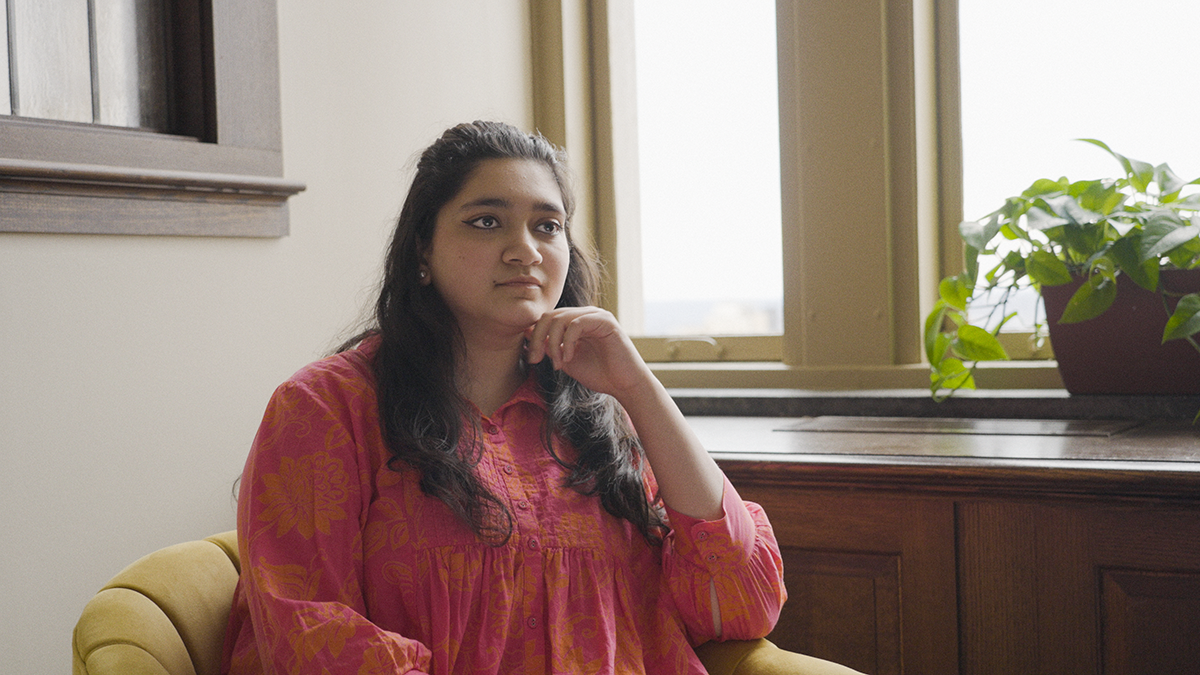Aqsa Owais is a resident leader at the University of Pittsburgh and a participant in campus initiatives focused on dialogue and civic engagement.
“Something that I’ve seen translates really well over is this idea that you have to really contextualize where the other person is coming from, understand why they think what they’re thinking and what is guiding their actions and attitudes and behavior, and finding a way to come to a compromise between that.”
What has been your experience with civil discourse initiatives at Pitt?
Can you talk to us about civil discourse skills that are taught in the classroom and translate over to the dorm rooms? Or any experiences you have where people have had heated conversations that required civil discourse skills?
Yeah, absolutely. I work as an assistant in Tower A, so a lot of the work that I do is managing different types of dialogue and especially amongst roommates themselves. One skill that I see translating over a lot is compromise. Pitt has a large emphasis on group work and group projects. We’re a very diverse campus, and within that, you get a lot of diversity of opinions. You may end up in a setting or in a situation where your roommate or the person that you work with, their political ideas do not necessarily align with your own. I think something that I’ve seen translates really well over is this idea that you have to really contextualize where the other person is coming from, understand why they think what they’re thinking and what is guiding their actions and attitudes and behavior, and finding a way to come to a compromise between that.
What does bridge building mean to you?
I think it is building sustainable connections and paths for conversation amongst different groups of people. A lot of the work that I’m doing on campus, I want to exist beyond my time. I have a lot of connections in different spaces and places. But when I’m gone, how are those connections going to maintain? How are the efforts that I have championed for going to be sustained long-term and really make it into the blueprint and the framework of what it means to be a Pitt student and to have that Pitt experience? So I am currently actively working on establishing those bridges between other groups and between other communities. For instance, even if I work in the student association, reaching out to Black Action Society and saying, ‘we want your voices to be represented within our community.’ We want to do whatever we can to amplify each other’s voices.
How do you feel like the civil discourse skills you’ve learned here are going to serve you out in the real world?
My aspirations are to be a medical healthcare provider. I want to be a doctor when I grow up, as people say. And something that I’ve noticed very recently is that when you are in a clinical setting, you’re in a very unique position in a sense that you see patients from a specific community time and time again. And that positions you to make certain observations about that community, to see how different laws, different health changes, or different environmental changes are affecting the health of that community. As a healthcare provider, you are now in a position to benefit that patient from a clinical perspective and also to be an advocate for that patient.
Last year, I shadowed House Representative Dr. Arvind Venkat, and that was a really eye-opening experience for me. He’s the first doctor to have been in the House of Representatives in the last 60 years, and he brings this nuanced perspective in the sense that he’s actively worked with patients. To be able to see him translate their experiences for the rest of politics is really powerful to see.

